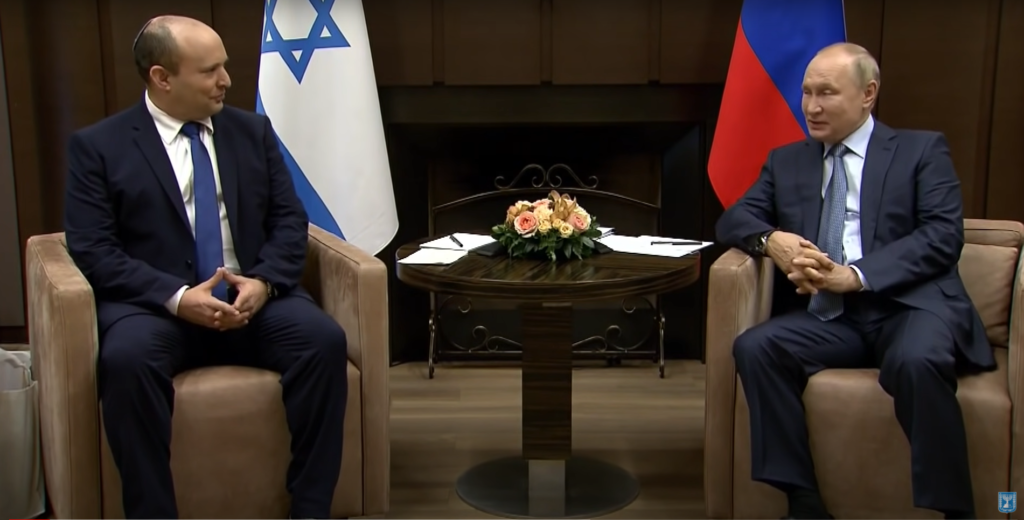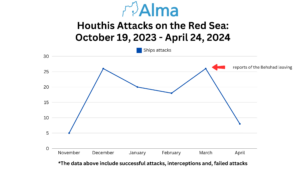*** The national Jewish need is the influential factor in Israel’s cautious policy vis-à-vis Russia in light of the war in Ukraine***:
As a Jewish state, Israel has a clear and fundamental interest in maintaining normal relations with Russia these days. Israel’s clear and fundamental interest is to ensure the safety of about 200,000 Jews living currently in Russia and Ukraine. The Jewish community in Russia totals around 150,000 Jews, while the Jewish community in Ukraine reaches about 40,000 Jews.
No country in the world is in a similar situation to the situation in which Israel finds itself. Israel has to do everything in its power to protect and keep tens of thousands of its people living in Russia and Ukraine safe, even if it means that the Israeli prime minister is required to travel to Moscow amidst the crisis, meet with the Russian president and act as an intermediary with western countries and Ukraine. As a Jewish state, the State of Israel has always treated Jews living around the world as if they were its citizens living in the State of Israel itself. Therefore, Israel’s conduct vis-à-vis Russia during the crisis due to the war in Ukraine should be one of caution.
Careless conduct on Israel’s part concerning Russia may affect the Jewish communities located in Russia and Ukraine:
Regarding the Jewish community in Russia, there is concern regarding the possible development of an anti-Jewish atmosphere among Russian public opinion or a situation in which the Russian government will create such an atmosphere as an “act of retaliation.” Given such a situation, the Jewish community in Russia may be further exposed to antisemitic activity against it, which may lead to physical acts of retaliation such as harming Jews, Jewish institutions, and so on. In addition, there is concern that the gates of Russia will be closed to the Jews, and they will not be able to leave Russia. As of now, there is a growing trend of Jews wishing to leave Russia. The main reason for this trend is the war in Ukraine and fear of what lays ahead.
In the case of the Jewish community in Ukraine, as of now, the fate of the Ukrainian government is unknown. The regime may undergo a transformation into a regime under Russian influence. There is a perfectly reasonable possibility that members of the Jewish community in Ukraine (or at least many of them) will have no choice but to emigrate to Israel. A large operation facilitating the transfer of the Ukrainian Jews to Israel would need cooperation from those who will rule and dominate Ukraine. There is a perfectly reasonable possibility that in the (near) future, the Russians are the ones who will fundamentally rule Ukraine. Until such an emigration operation is carried out, Israel will want to deliver humanitarian aid to the Jewish communities living in Ukraine, some already under Russian control. Russian cooperation is needed to succeed in delivering such humanitarian aid or carrying out a major operation bringing the Jews of Ukraine to Israel.
In contrast, the security aspects related to the Israeli military activity in Syria do not constitute cause for Israel to pursue a cautious policy towards Russia and differentiate itself from the West’s conduct against Russia (sanctions and sending military assistance) in context to the war in Ukraine. Preserving Israel’s cautious policy vis-à-vis Russia and differentiating Israel from Western policy against Russia is a necessity in which the lives of tens of thousands of Jews depend on the Russian’s “mood.”
*** As a regional power, Israel can continue to carry out military activities in Syria even without coordination with the Russians. Israel needs to set the rules of the game. It can constitute a lever of influence over the Russians and cause them to accelerate the race for influence against Iran in Syria ***
In terms of the security aspect, the main Israeli concern is the fear of harming one of the ten thousand Russian soldiers operating on Syrian soil. In light of this, a coordination mechanism was established between Israel and Russia, in which there is an operational “hotline” between the IDF and the Russian headquarters located at the Hmeimim base north of Latakia in northern Syria. The ” hotline ” aims to coordinate Israel’s CBW’s activities with the Russians. However, it is very likely that the Russians in the past abused coordination with Israel and, in some cases, exposed Israel’s military intentions in advance to the radical Shiite axis led by Iran.
Israel knows how to conduct itself militarily in Syria, even without coordination with the Russians. While it will require additional intelligence efforts to rule out Russian presence while carrying out CBW operations, it will also require more risk management. Still, it is clearly possible.
As a regional power, it is Israel that should set the rules of the game in the region and not let hostile regional “players” (the radical Shiite axis led by Iran) or guest “players,” even if they are considered as a superpower (Russia), establish the rules and equations that directly affect its security. The Middle East should be considered one arena, and Israel needs to establish a central rule: any threat to Israel’s security, anywhere in the Middle East, will be met with an independent response from Israel, and the other “players” should take this into account. They are the ones who need to manage the risks concerning this Israeli rule and not the other way around.
Such a policy would urge the Russians to intensify their race for influence against Iran in Syria, thus contributing to Israeli interests. Such Israeli policy is also in the interest of Western countries while facing the challenges posed by the Russians (Ukraine), Iran (the nuclear deal), and the Chinese (Taiwan).
*Featured photo on top is a screengrab from Prime Minister Naftali Bennett and President of Russia Vladimir Putin meeting in Sochi, Russia, October 2021.






